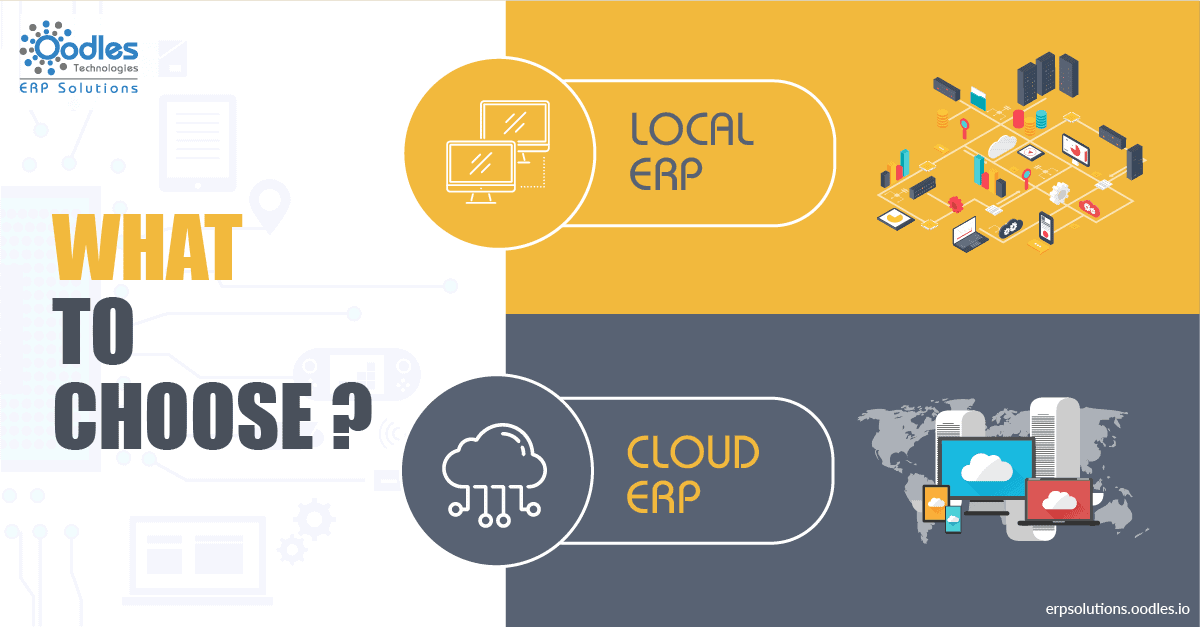One of the major decisions you will make is about whether to choose cloud ERP or a Local installed ERP. Cloud ERP systems have gained a popularity in recent years especially among small to mid-sized businesses. First, let’s determine how cloud ERP is different from on-premise ERP.
Difference between Cloud-based ERP and Local installed ERP:
Cloud-based ERP software solutions come under a SaaS(Software as a service) format. ERP cloud software is hosted on a vendor’s server and all the data created on it is managed by the software vendor. A customer can access the software through a web browser.

On-premise ERP software is installed on company’s own servers and computers. Here, the company is responsible for its management and maintenance.
This blog presents an analysis of both types of ERP to help you make a choice between Cloud ERP and Local ERP:
Comparison Between The Cost Of Local ERP And Cloud-Based ERP
On-premise ERP involves one large investment up front in terms of its implementation, maintenance cost and license fee and recurring fees for updates. Importantly, your company would need a department or team for managing the software if you don’t have one. Each time when new updates will come, the department holds a responsibility to make those changes in the whole software. On a contrast, cloud-based ERPs has cheaper upfront investment. Its initial implementation cost is much lower and its costs are predictable over time.
On-premise ERP software:
1. Large upfront investment
2. Hardware maintenance and IT costs
3. Customizable
4. A business has greater control over its implementation process.
Cloud-based ERP software:
1. Costs are predictable over time
2. Does not involve additional hardware costs
3. Take Less time for implementation
4. Greater Stability and easy to use
Integration of Cloud ERP Vs Local ERP
Since the installation of hardware and software on servers or user devices is not required in cloud-based ERP, it is faster to implement. As a matter of fact, the software is easy to implement in spite of the fact that a company has organizations in various parts. On the other hand, On-premise ERP systems take longer time in implementation processes
Performance analysis of Cloud-based ERP Vs Local ERP
Another advantage offered by ERP in the cloud is its scalability factor. Scalability refers to the flexibility offered by the solution providers to enhance or reduce the capacity of cloud ERP in terms of maximum users and in the treatment of data. In comparison to local installed ERP, optimized computer systems let the functioning of the software achieve maximum performance.
Another point that is worth noting that data is accessible in Cloud ERP systems that it handles in real time. Plus, it can be viewed and consulted from anywhere and at any time. So, this implies that employees can access information at their disposal from their laptops or mobile phones no matter wherever they are, without extra costs involved.








